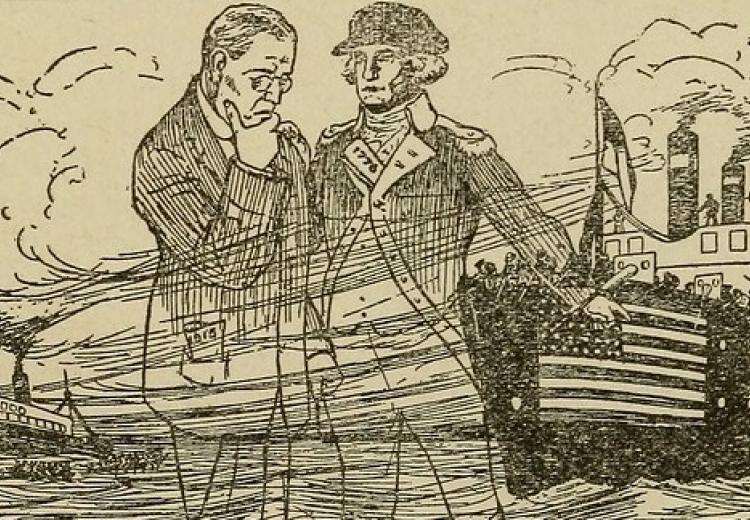Woodrow Wilson and Foreign Policy

"Neutrality? The crucifixion of public opinion" (1916)
The influence of President Woodrow Wilson (1913-1921) on American foreign policy has been profound and lasting. In this curriculum unit, students will study the formation, application, and outcomes--successes and failures alike--of Wilson's foreign policy. Ultimately, students will evaluate the legacy of Wilsonianism in U.S. foreign relations and its extension into contemporary U.S. history.
Guiding Questions
How did Wilson's foreign policy ideas compare to previous American foreign policy strategies?
In whose interest did the Wilson administration respond to events in Latin America ?
Was the decision to intervene in World War I justified?
To what extent were Wilson's Fourteen Points a blueprint for international relations during the 20th century?
Learning Objectives
Evaluate the influence that Wilson's academic career and progressivism had on his ideas about foreign policy
Compare "Wilsonianism" to previous foreign policy ideologies and assess the degree to which it succeeded.
Evaluate the extent to which the U.S safeguarded American economic interests and promoted democratic reforms in Latin America during Wilson's presidency.
Assess the decision by the United States to remain neutral after the outbreak of war in Europe in August 1914.
Analyze the conflicting perspectives regarding U.S. neutrality and intervention during WWI.
Evaluate the following statement: "The Fourteen Points brought about a change in U.S. foreign policy that has never been reversed."
Examine the extent to which Wilson's approach to foreign policy remains relevant today.
